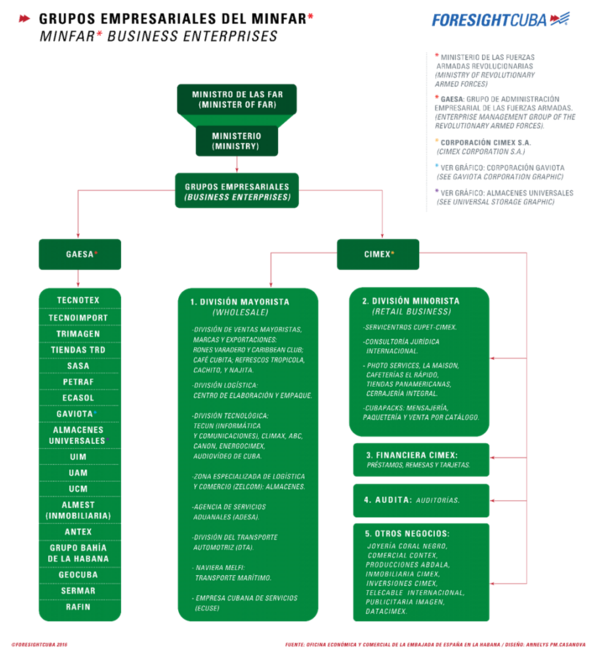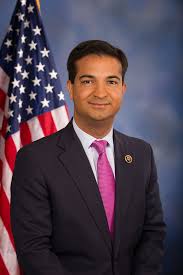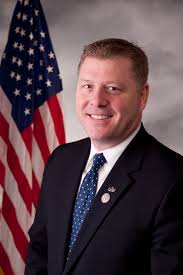Could This Be President Trump's Message About Cuba On Friday In Florida?
/Could President Trump Say This About Cuba On Friday? It's Possible....
NOTE: It’s Not What United States Companies Want
The White House
Washington, DC
16 June 2017
Remarks By Donald J. Trump
Miami, Florida
Applause
Thank you. Thank you everybody. It’s great to be back in Miami.
I just arrived on Air Force One with some Members of Congress how I think you know:
Senators Cruz, Menendez and Rubio; and Members of the House of Representatives Curbelo, Diaz-Balart, and Ros-Lehtinen. They each have a special connection to Cuba and that’s why I invited them to be here with me… and with you.
We had an opportunity to discuss many things during the trip. This is a passionate group. I love passionate people.
Ileana is retiring next year; let’s thank her for her almost thirty years of service to our great country. Thank you, Ileana.
And, we are joined by my friend and your great governor, Rick Scott.
Also with me are very important members of my Cabinet: Secretary of the Treasury Mnuchin and Secretary of Homeland Security Kelly. Their departments will be central to my efforts to bring prosperity to the 11.3 million citizens of Cuba along with Secretary Ross at the Department of Commerce. And, Secretary Tillerson at the Department of State will be integral in linking all that we do with successful diplomatic efforts. They are the new sheriffs in town.
Florida has been very good to me; my second home really. I love the people of Florida. All of you! A very special place.
There have been a lot of rumors since 9 November 2016- will Donald Trump reverse everything, will Donald Trump do nothing. Well, today we work to make a bad deal into a good deal. Into a very very good deal.
Know this- my focus is on helping to create better lives for the 11.3 million citizens of Cuba. They have been repressed for far too long. They need to be free.
On Monday, CNN quoted an unnamed official from the government of Cuba talking about “negotiating” with the United States. See, I haven’t done anything yet and they know that they have to make a better deal. And, I see that the government of Cuba uses Twitter!
My friends, that’s what happens when you negotiate from a position of strength instead of a position of weakness, as the Obama Administration did with Cuba.
Most importantly, don’t make a mistake and think that just because you did not hear me say it today that I will not have more to say during the next months and years. I will continue to review the impact of what has been done. If more is required, more will be implemented.
Separating placing pressure on the government of Cuba and trying not to inflict harm on the people of Cuba is not easy; and it’s not an easy decision for a president.
Despite what some pundits and lobbyists and advocates say, one-size-policy-for-all does not work. Each country is different, and where we can support to bring change, we will support. Where we must pressure to bring change, we will pressure. I can tell you this: I will not be pressured.
There are some in the United States Congress who want me to be tough, very tough. There are three members of the United States Senate who are of Cuban descent and three members of the United States House of Representatives who are of Cuban descent.
There are some members of the Cuban-American community who want me to be tough. I hear you.
Everyone has compelling stories… and the importance of those stories are not lost upon me. I ask that you not judge me only on what you hear today.
913 days ago, after months of secret negotiations, President Obama and President Castro announced the re-establishment of diplomatic relations between our two countries.
Do you remember that moment? President Obama wore a suit, stood at a podium and used 2,283 words. President Castro sat at a desk, wore a military uniform and used 682 words. That should have been a hint to everyone about the differences each leader viewed the moment.
During the final twenty-five (25) months of the Obama Administration, there continued a series of unilateral, one-way-benefiting policy changes and regulatory changes which I believe provided far more to the government of Cuba than to the people of the United States.
It was a bad deal. I know a good deal from a bad deal. President Obama made a bad deal. He sent very inexperienced staff to negotiate with very experienced representatives of the government of Cuba. That won’t happen again.
The only reason that the Trump Administration has the political will to consider making changes to Obama Administration initiatives is due to how little the government of Cuba permitted United States companies to do within Cuba.... And, how little the Obama Administration did to secure the position of United States companies… And, how the Obama Administration allowed the government of Cuba to take advantage of us- when there were opportunities to receive revenue, they said yes; when an opportunity might cost them money or challenge their control, they said no.
Reports are false (fake news again) that United States companies would lose billions of dollars in revenues and thousands of jobs if I were to rescind the Obama Administration giveaways.
Do any United States companies have manufacturing plants in Cuba? No. Do any United States companies have distribution centers in Cuba? No. Do any United States companies have substantive offices in Cuba? No. Believe me, I wish they did- under the right circumstances.
And, those who believe Russia and China will be the saviors of Cuba and take all the best deals. They are just trying to juice-up a false-narrative. I know about promotion; that’s all it is.
For anyone to believe that Russia and China will get all the best deals and United States companies will be left behind accepts the position that Cuba has reached its potential. It has not. Potential does not have an end, a limit. Potential is a continuum- it’s always changing, never stagnant. We strive to be better and better and better.
As Cuba moves from one potential to another potential, United States companies will be there in droves with good deals in hand and prepared to accept good deals to benefit the people of Cuba.
We can’t let the government of Cuba define potential. I won’t do that.
Important not to forget that the government of Cuba, primarily because of the inefficient ways it chooses to manage its economy, owes money to everyone and always wants governments (and their taxpayers) to support them. That’s a model of failure, not a model of success. We like success.
And, any decreases in opportunities for United States companies in the short-term will be negated by the tremendous opportunities that will be created when we help the Cuban people reach for ever-higher potential.
The government of Cuba fears their citizens reaching for anything. We will provide the ladders for success and for freedom.
This may sound strange, but I wish rescinding any of the Obama Administration giveaways would result in United States companies losing billions in revenue and thousands of jobs- with some of those jobs in Cuba. Because then I would not need to do anything.
If the Obama Administration had made a better deal, United States companies would be exporting more, importing more, staffing offices and factories in Havana with Americans and with Cubans- who would be directly hired and directly paid by those companies. Havana and Holguin and Camaguey and Santiago de Cuba could have looked so much different…. So different.
If the Obama Administration had made a better deal, United States companies would be exporting directly to Cubans who brave the unnecessary and stifling bureaucracy of the government of Cuba to establish independent businesses.
I heard this on the plane before I arrived today:
A hair salon can cut and style hair for customers, but can’t sell shampoo to customers. The hair salon and the customers purchase their products at the same retail stores and pay the same price. No wholesale markets! That’s nuts.
The government of Cuba tolerates private enterprise. The government of the United States embraces private enterprise. I say to President Castro- Let us in. Let us help. Let us compete.
Let’s remember that the government of Cuba limits types of independent businesses to a list of approximately 200. That’s just plain stupid. It shows that the private sector to the government of Cuba is a game to be played as needed. That the private sector to the government of Cuba is a show-toy. That needs to change. And I am looking to many of you to help me to that with the people of Cuba.
Developing policies towards countries is not an exercise in one-size-fits-all; it’s important to evaluate where the United States has leverage and where it does not; and then how to use that leverage to harness opportunities for success, while minimizing harm.
For Cuba, the government of Cuba, it no longer can count upon Venezuela to provide it with donations, grants, discounts, and subsidies. Due to the lower values for oil and natural gas, those countries that paid next to nothing to the Cuban citizens who were sent by their government to work for them, while the government of Cuba took most of the wages, don’t have the ability to continue with those contracts. That’s good for the Cuban people. Force the government of Cuba to make changes to its commercial, economic and political structures to give space for the private sector- and the jobs the private sector will create.
The government of Cuba needs to stop eternally seeking a knight in shining armor to rescue them from having to change their commercial, economic and political systems. Cuba looks as it does today not because it works; it looks as it does only because others prop it up. That’s not a good business model.
Almost two million people of Cuban descent reside in the United States, and many of those citizens and residents arrived through a hallowed place here in Miami, The Freedom Tower. It’s not too far from here.
How magnificent would it be, and I believe will be, for everyone of Cuban descent to be able to travel freely to the country of your birth, the country of your ancestors? To conduct business with and to invest in the country that is so much a part of your DNA?
The government of Cuba needs to cease being afraid of its people, cease being afraid of its exile community, cease being afraid of change.
I call upon President Castro during his remaining 254 days in office to unleash the potential of his citizens- don’t fear what they can accomplish without your interference, rejoice in what they can do independent of your interference.
It’s not for the government of Cuba to determine a person’s worth, determine what they can or can’t do, what type of business they can manage- the decision about a person’s worth is for them to decide. Governments can help, but they must know when to get out of the way.
I call upon Vice President Diaz-Canel, who will become president of Cuba on 24 February 2018, to begin his first term in office by: Ending political persecution, permitting free expression, permitting free elections, permitting a private sector to flourish, and permitting the United States to be the tremendous friend that we are prepared to be to the people of Cuba.
If our two governments can make progress during these next months, then how terrific would it be for President Diaz-Canel to visit with me and Vice President Pence at The White House?
Much would have to happen before that meeting could happen, but I am open to it and would welcome it. I’ve got about 1,300 days remaining in my first term, so there’s time…. But, since there’s much to do, let’s try to get it done soon…… I think that you know I am a rather impatient person.
What it did
The Obama Administration re-opened the embassies, dramatically increased the number of visitors to Cuba and dramatically increased the amount of money going to Cuba. The government of Cuba earned and saved what has been estimated at up to US$12 billion since 2014.
More money is flowing into the hands of members of the Communist Party and military; we are going to put an end to that.
What has not happened
Has the government of Cuba increased purchases of food products, agricultural commodities and healthcare products from the United States in a meaningful way? No.
Have companies in the United States exported to Cuba a fraction of the products and services that were authorized by the Obama Administration? No.
Some Members of Congress want to permit payment terms for agricultural commodities and food products to Cuba; currently United States law requires cash-in-advance; that’s a way to make certain that United States companies aren’t standing in line with everyone else that Cuba owes money to.
I am generally OK with supporting payment terms- if they are not linked to anything else: meaning no access to any United States government financing, payment or guarantee programs. And, no linkage to any other issue- like tourist travel to Cuba or settling the certified claims.
What it did not do & What I Want
During the eight years of the Obama Administration, there were only two, yes two meetings to discuss the issue of the 5,913 certified claims against the government of Cuba for the expropriation of the assets of companies and individuals. Those claims were valued at US$1.9 billion but are now valued at approximately US$8 billion.
The Obama Administration said the issue of the certified claimants was a “high priority.” Well, they had two meetings, not negotiations, but two meetings in two years- and there was not a second meeting scheduled after the first meeting and not a third meeting scheduled after the second meeting. That’s crazy.
Today, I am announcing that a formal Negotiating Team will be appointed and the government of Cuba will be notified that no expanded commercial engagement or changes to our international financial enforcement programs will be permitted until the issue of the certified claims are settled.
And, I will not support any legislation that would have United States taxpayers repaying United States companies for actions of the government of Cuba. That’s a very bad deal.
The government of Cuba should immediately return United States citizens who fled to Cuba in order to escape justice, especially Joanne Chesimard should be brought to justice in New Jersey in connection with the brutal murder of a police officer.
I love that United States companies are in Cuba; they should be. The problem is we as a nation should not be encouraging the development of a military-state that is 93 miles south of Key West, Florida.
Havana should not be the home to companies controlled by the military and should not be the home to a government controlled by the military. Companies should be controlled by individuals and governments should be controlled by citizens.
What I won’t accept
I believe that our citizens should visit Cuba- to help change it. The “it” is not the people. The “it” is the type of government.
I’m going to discourage visitors from dealings with the military in Cuba. The Department of the Treasury’s Office of Foreign Assets Control (known as “OFAC”) will publish a list of companies in Cuba that are controlled by the military; and some of these companies will be restricted from any transactions with United States individuals and companies.
If you are traveling to Cuba, and only those who are authorized should do so, then choose carefully- try to have your money go directly to the Cuban people.
We continue to consider prohibiting self-directed travel and returning to requiring visitors to be a part of organized groups.
Too many people are hopping on planes, staying in government-owned hotels, eating in government-owned restaurants, using government-owned transportation… for a vacation. Folks, tourism is illegal. It’s the law.
A note about travel. There will be increased enforcement and that will be through the efforts of the brave men and women who work for Customs and Border Protection (CBP) at the Department of Homeland Security. And Secretary Kelly, who is here with us, is doing an amazing job.
When travelers return to the United States from Cuba, be prepared to show all the required documents- if you are going under the educational category or people-to-people category, I am warning you now- know what you must have. Check the OFAC’s web site. If you don’t have what you are supposed to have, don’t be shocked if you are delayed and miss your connecting flight.
And, if you are returning with cigars and rum, our great inspectors from the USDA might want to take a look….
I’m going to discourage United States companies from dealings with the military in Cuba. If a United States company wants to work with a company in Cuba that is controlled by the military, then it will have to prove to Secretary Mnuchin and to Secretary Ross that the deal will benefit the Cuban people, rather than entrench the military within the commercial sectors of Cuba.
If a United States company wants to get into bed with the Cuban military, then be prepared to demonstrate how that will result in more freedom for the Cuban people rather than more prosperity for generals in Cuba.
In Conclusion
During the campaign, I made statements about my intentions relating to Cuba. During the transition, I made statements about my intentions relating to Cuba. Since the inauguration, I have made statements about my intentions relating to Cuba. However, until today, I have not done anything.
Simply with my statements, the government of Cuba has been impacted. Governments and companies and financial institutions in other countries (an in the United States) have remained hesitant to engage with Cuba or to announce new engagements.
See what happens when I don’t do anything; now see what happens when I do something.
I’m putting other countries on notice- don’t take or use assets that were stolen; don’t help the government of Cuba avoid its problems; don’t think that by going-along-to-get-along with the government of Cuba is helping the people of Cuba, who are victims of almost sixty years of abuse; and do help change the behavior of the government of Cuba.
To the young people of Cuba- the future of Cuba, know that the United States will work as hard as possible to help you do what you want to do, not what your government tells you to do.
At the right moment, I will visit Cuba… to honor your sacrifice, honor your perseverance, and honor your heritage.
Thank you. And, God Bless America.







































